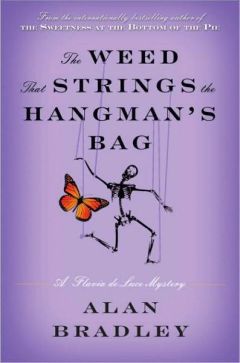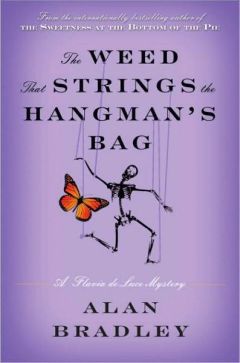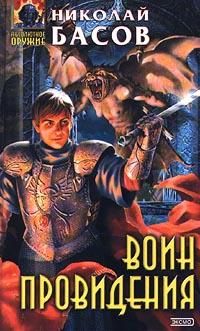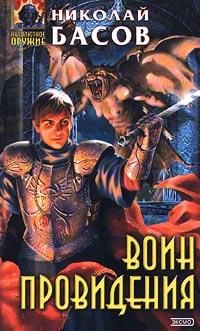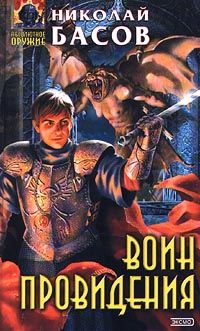Alan Bradley - A Red Herring Without Mustard: A Flavia de Luce Novel
Nothing but the sound of my own breathing. I peered cautiously round the corner—
“Beck!” said a loud voice, almost at my ear. I shrank back and flattened myself against the wall.
“Beck, get yourself out here. Quench’s man will be along directly, and we want to have her ready to hand over. You know as well as I do what happens when we keep them waiting.”
Ellis and Quench, I knew, was Hinley’s largest and oldest undertaking firm, and was known far and wide for the shininess of its Rolls-Royce hearses and the gleam of its Daimler mourners’ cars.
“When Ellis and Quench buries you, you’re buried,” Mrs. Mullet had once told me. I could easily believe that they would not like to be kept waiting.
“Old Matron gets her knickers in a knot,” the voice went on, “if we’re not all shipshape and Bristol fashion on the loading dock. And when old Matron’s not happy, I’m not happy, and when I’m not happy, you’re not happy. Beck? Get yourself out here, will you?”
There came the sound of boots shuffling on the timbers of the dock, and then a voice—a surprisingly young voice; perhaps a boy’s voice—said: “Sorry, Mr. Martin. I forgot to tell you. They rang up about twenty minutes ago. Said they’d be round later. Had a call out to the Old Infirmary, they did.”
“Oh, they did, did they? The buggers! Think nothing of leaving the likes of us twisting in the wind, whilst they go larking about the countryside in their bloody Bentleys. Well, I’m going down to the boiler room for a cup of tea, Quench or no Quench. Matron’s up on Anson Ward with the latest crop of nursing sisters. Poor wee things—I hope they remembered their asbestos uniforms!”
I waited until I heard the heavy doors close, then quickly, before I could think better of it, scrambled up onto the loading dock.
“Blast!” I said under my breath, as a sliver of wood pierced my knee. I pulled the thing out and shoved it into my pocket so as not to leave any evidence behind. I dabbed at the oozing blood a bit with my handkerchief, but there was no time for compresses. It would have to do.
I took a breath, pulled open the heavy door, and stepped into a dimly lighted corridor.
The floors were marble, and the walls were painted—brown for the first four feet, then a ghastly green from there all the way up to the ceiling, which appeared to have been whitewashed in another century.
On my right were three small cubicles, one of which was occupied by a wheeled cart, upon which lay a sheeted figure. It took no great stretch of the imagination to guess what lay beneath. This was the real thing: the genuine article!
I was dying to undo the buckles on the straps and have a peek under the sheet, but there wasn’t time.
Besides, there was part of me that didn’t want to know if the body was Fenella’s.
Not just yet. Not in that way.
From where I stood, I could see the full length of the corridor, which stretched away from me into the distance. It seemed endless.
I began to move slowly, putting one foot in front of another: right foot … left foot. On one side of the corridor was a double door marked “Laundry.” From behind it came the muffled rumble of machinery and a woman laughing.
Left foot … right foot … toe to heel …
The next door was the kitchen: dishes clattering, voices chattering, and the powerful, clinging smell of greasy cabbage soup.
Soup for breakfast? I realized that I hadn’t eaten since yesterday, and my stomach gave a heave.
For the next dozen paces, the walls were inexplicably moss green, and then, just as quickly, a queasy mustard yellow. Whoever had chosen the paint, I decided, wanted to ensure that anyone who wasn’t sick when they entered the hospital jolly well would be before they left.
The next set of doors on the left, judging by the bracing whiff of formalin, belonged to the morgue. I gave a little shiver as I passed: not one of fear, but rather of delight.
Another room was marked “X-Ray,” and beyond that point, open doors on both sides of the corridor, with room numbers on every one. In each room, someone was sleeping, or rolling over. Someone was snoring, someone moaned, and I thought I heard the sound of a woman crying.
These are the wards, I thought, and there must be others on the first and second floors.
But how could I find Fenella? Until then, I hadn’t given it a moment’s thought. How does one quickly find a needle in a haystack?
Certainly not by examining one straw at a time!
I had now arrived at a doorway that opened into a sort of large foyer, in the center of which a woman wrapped in a black woolen sweater was staring intently at a spread of playing cards on her desk. She did not hear me come up beside her.
“Excuse me,” I said, “but you can put the five of diamonds on the black six.”
The woman nearly fell out of her chair. She jumped to her feet and spun round to face me.
“Don’t ever—” she said, her face going the color of beets. “Don’t you ever dare—” Her fists clenched and unclenched spasmodically.
“I’m sorry if I startled you,” I said. “I didn’t mean to, really …”
“What are you doing here?” she demanded. “No visiting until one-thirty this afternoon, and it’s only just gone—” She shot a glance at her watch, an impossibly tiny lump strapped to her wrist.
“I’m waiting for my cousin,” I explained. “She’s just slipped in to bring our grandmother some …”
I took a deep breath and wracked my brains for inspiration, but the only thing that came to mind—to my nostrils, actually—was the nauseating odor still leaking from the kitchen down the corridor.
“Soup!” I said. “We’ve brought our gram some soup.”
“Soup?” The woman’s voice—and her eyebrows—went up into an inverted V. “You’ve brought soup? Here? To a hospital?”
I nodded meekly.
“Who’s your grandmother?” she demanded. “What’s her name? Is she a patient here?”
“Fenella Faa,” I said without hesitation.
“Faa? The Gypsy woman?” she asked, sucking in her breath.
I nodded dumbly.
“And your cousin, you say, has brought her soup?”
“Yes,” I said, pointing haphazardly. “She went that way.”
“What’s your name?” the woman asked, snatching up a typewritten list from her desk.
“Flavia,” I said. “Flavia Faa.”
It was just implausible enough to be true. With a snort like a racehorse, the woman was off, down a wide corridor on the far side of the foyer.
I followed in her wake, but I don’t think she noticed. Still, I kept well back, hoping she didn’t turn round. I was in luck.
Without a backwards glance, she vanished into the second room but one on the left, and I heard the sound of curtains being swept open. I didn’t stop, but continued on past the open door. A single glance revealed Fenella in the farthest bed, her head swathed in bandages.
I ducked down out of sight behind a draped cart that was parked against the wall.
“All right, come out of there!” I heard the woman say, followed by the click of a door being opened—probably the room’s W.C.
There was a silence—then a low, muttered conversation. Was she talking to Fenella—or to herself?
The only word that came clearly to my ears was “soup.”
Another brief silence, and then the sound of the woman’s shoes went echoing away down the corridor.
I counted to three, then flitted like a bat into Fenella’s room, closing the door behind me. A whiff of ether told me that this must be the surgical ward.
Fenella was lying motionless on her back, her eyes closed. So frail, she looked—as if the bedsheets had absorbed the last ounce of her juices.
“Hello,” I whispered. “It’s me, Flavia.”
There was no response. I reached out and took her hand.
Ever so slowly her eyes came open, fighting to focus.
“It’s me, Flavia,” I said again. “Remember?”
Her wrinkled lips pursed, and the tip of her tongue appeared. It looked like the head of a turtle emerging from its shell after a long winter at the bottom of the pond.
“The … liar,” she whispered, and I grinned as stupidly as if I had just been awarded first prize at the spring flower show.
Licking her lips feebly, Fenella turned her head towards me, her black eyes now suddenly fierce and imploring in their sunken sockets.
“Sret,” she said quite distinctly, giving my hand a squeeze.
“Sorry,” I said, “I don’t understand.”
“Sret,” she said again. “Puff.”
A light went on at the back of my brain.
“Cigarette?” I asked. “Is that what you’re saying?”
She nodded. “Sret. Puff.”
“I’m sorry,” I said, “I don’t smoke.”
Her eyes were fixed upon mine, imploring.
“Tell you what,” I said. “I’ll go find you one, but first, I need to ask you a couple of important questions.”
I didn’t give her time to think.
“The first is this: Do you really believe I did this to you? I’d die if you did.”
Her brows knitted. “Did this?”
“Put you here—in the hospital. Please, Fenella, I need to know.”
I hadn’t meant to call her by her given name—it just slipped out. It was that kind of moment. Daffy had once told me that knowing and using someone’s name gave you power over them.
There was no doubt that, at least for now, I had power over this poor injured creature, even if it was only the power to withhold a cigarette.
“Please, Fenella!” I pleaded.
If this was power, I wanted no part of it. It felt dreadful.
Without taking her eyes from mine, she moved her head slowly from side to side.
“No,” she whispered at last, replying to my question.
No? It was not the answer I was expecting. If Fenella didn’t think I had attacked her, then Porcelain had lied!
“Who was it, then?” I demanded in a voice so rough that it surprised even me. Had that savage snarl issued from my throat?
“Who was it? Tell me who did this to you!”
For some inexplicable reason, I wanted to seize her and shake the answer out of her. This was a kind of anger I had never known before.
Fenella was terrified. I could see it in her fuddled eyes.
“The Red Bull,” she said, accenting each of the two words. “It was … the Red Bull.”
The Red Bull? That made no sense at all.
“What’s going on here?”
The voice came from the doorway. I spun round and found myself face-to-face with a nursing sister. It wasn’t just the white uniform and stockings that made her seem so intimating: The blue cape with its red lining and piping had turned her into a human Union Jack.
“Flavia?”
The familiar voice took me by surprise.
It was Flossie Foster, the sister of Feely’s friend Sheila!
“Flossie? Is it really you?”
I’d forgotten that Flossie had gone in for nursing. It was one of those trifles that had been mentioned at the dinner table by Feely, somewhere between the salad and the sausage rolls, and put out of mind before the plates were cleared away.
“Of course it’s me, you goose. What on earth are you doing here?”
“I … ah … came to visit a friend,” I said, making a sweeping gesture towards Fenella.
“But visiting hours aren’t until this afternoon. If Matron catches you, she’ll have your toes on toast.”
“Listen, Flossie,” I said. “I need a favor. I need a cigarette, and I need it quickly.”
“Ha!” said Flossie, “I should have known! Feely’s little sister is a tobacco fiend!”
“It’s not like that at all,” I said. “Please, Flossie—I’ll promise you anything.”
Flossie reached into her pocket and pulled out a packet of Du Mauriers and a monogrammed cloisonné lighter.
“Now light it,” I told her.
Surprisingly, she did as she was told, although a little furtively.
“We only smoke in the nursing sisters’ tea room,” she said, handing me the cigarette. “And only when Matron’s not around.”
“It’s not for me,” I said, pointing to Fenella. “Give it to her.”
Flossie stared at me. “You must be mad,” she said.
“Go ahead, give it to her … or I’ll tell Matron what you had in the hip flask at the vicar’s garden party.”
I was only teasing, but before I could shoot her a grin, Flossie had inserted the cigarette between Fenella’s dry lips.
“You’re a beast,” she said. “An absolutely horrid little beast!”
I could tell she wanted to slap me, as I gave her a triumphant smirk.
But instead, we both of us broke off to look at Fenella. Her eyes were closed, and smoke was rising from her mouth in a series of puffs, like smoke signals from an Apache campfire. They might well have been spelling out the word “b-l-i-s-s.”
It was at that very moment that Matron barged into the room.
In her elaborate cocked hat and starched white bib, she looked like Napoleon—only much larger.
She sized up the situation at a glance.
“Nurse Foster, I’ll see you in my office.”
“No, wait,” I heard myself saying. “I can explain.”
“Then do so.”
“The nurse just stepped in to tell us that smoking is forbidden. It’s nothing to do with her.”
“Indeed!”
“I heard you coming,” I said, “and stuck my cigarette into that poor woman’s mouth. It was stupid of me. I’m sorry.”
I snatched what was left of the cigarette from Fenella’s lips and shoved it between my own. I took a deep drag and then exhaled, holding the thing between my second and third fingers in the Continental manner, as I had seen Charles Boyer do in the cinema, and all the while fighting down the urge to choke.
“Then how do you explain this?” Matron asked, picking up Flossie’s lighter from Fenella’s blanket, and holding it out accusingly towards me.
“It’s mine,” I said. “The F is for Flavia. Flavia de Luce. That’s me.”
I thought I detected a nearly imperceptible squint—or was it more of a wince?
“Of the Buckshaw de Luces?”
“Yes,” I said. “It was a gift from Father. He believes that the occasional cigarette fortifies one’s lungs against vapors from the drains.”
The Matron didn’t exactly gape, but she did stare at me as if I had suddenly sprouted a beak and tail feathers.
Then suddenly, and without warning, she pressed the lighter into my hands and wiped her fingers on her skirt.
There was the sound of professional shoe leather in the corridor, and Dr. Darby walked calmly into the room.
“Ah, Flavia,” he said. “How nice to see you. This, Matron, is the young lady whose prompt action saved the life of Mrs. Faa.”
I stuck out a hand so quickly that the old dragon was forced to take it.
“Pleased to meet you, Matron,” I said. “I’ve heard so much about you.”
TWENTY-FIVE
